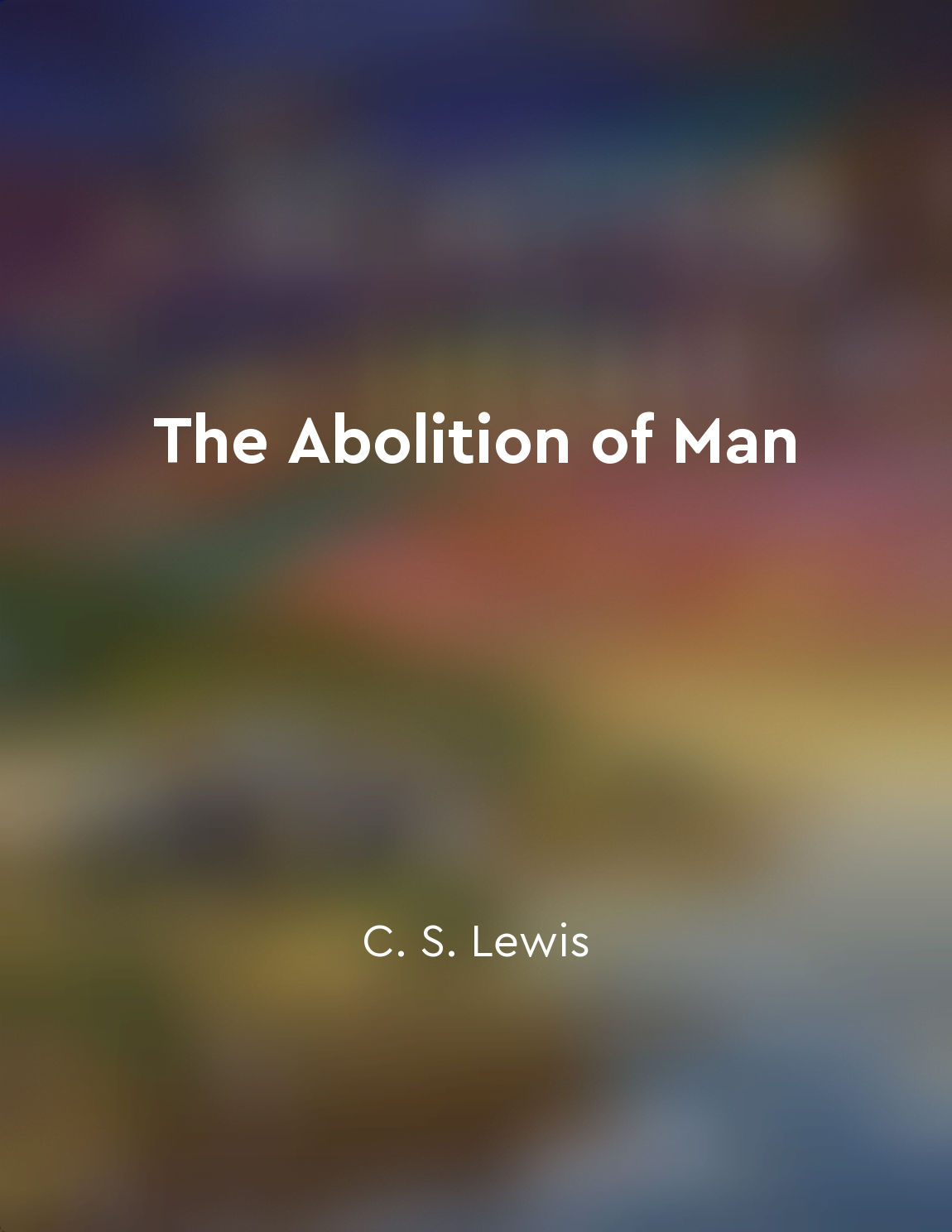Dangers of relativism and subjectivity in ethics from "summary" of The Abolition of Man by C. S. Lewis
One of the most pressing issues facing modern society is the rejection of objective moral values in favor of relativism and subjectivity. This dangerous trend has serious implications for the future of ethics and the moral fabric of our world. Without a firm foundation of objective truth, moral principles become mere matters of personal preference, devoid of any inherent value or authority. Relativism and subjectivity in ethics lead to a moral vacuum, where individuals are free to define right and wrong according to their own desires and inclinations. This self-centered approach to ethics not only undermines the very concept of morality but also threatens to erode the shared values that hold society together. When each person is free to create their own moral code, the result is chaos and conflict, as there is no common standard by which to judge behavior. Furthermore, the rejection of objective moral values opens the door to manipulation and control by those in power. Without a shared understanding of right and wrong, individuals are vulnerable to the whims of those who seek to exploit moral ambiguity for their own gain. In a world where everything is relative, there is no basis for resisting tyranny or injustice, as each person's truth is considered equally valid. In his seminal work, 'The Abolition of Man', C. S. Lewis warns against the dangers of relativism and subjectivity in ethics. He argues that objective moral values are essential for maintaining a healthy society and fostering human flourishing. Without a fixed moral compass to guide our actions, we are adrift in a sea of moral confusion, unable to distinguish between right and wrong.- The rejection of objective moral values in favor of relativism and subjectivity is a recipe for moral and social decay. It is imperative that we recognize the importance of objective truth in ethics and strive to uphold universal moral principles that transcend individual preferences and cultural differences. Only by anchoring ourselves in the bedrock of objective morality can we hope to build a just and humane society for future generations.
Similar Posts

Calibration of confidence is vital for accurate predictions
The accuracy of our predictions hinges on our ability to calibrate our confidence levels accordingly. It is not enough to simpl...
Our thoughts shape our reality
Our thoughts are not merely passive reflections of the world around us, but active forces that shape our reality. When we think...

Our brains are wired to prefer fast thinking
The human brain is a marvel of evolution, finely tuned to help us navigate the complexities of the world around us. One of the ...
Treat humanity as an end, not a means
According to Immanuel Kant, treating humanity as an end in itself means not using others merely as a means to an end, but valui...
Intuition takes precedence over rational thought
In the moral domain, intuitions come first and reasoning is usually just a post-hoc construction made up on the fly, crafted to...

The search for certainty can lead to ethical stagnation
When we embark on a quest for absolute certainty in our ethical beliefs, we unwittingly close ourselves off to the complexities...
Language structures human thought
The concept that language structures human thought lies at the heart of understanding how our minds have been shaped over the c...
A morally good action is one that is done out of a sense of duty, not inclination
According to Kant, the moral worth of an action lies in the motivation behind it. He argues that a morally good action is one t...
World wars devastated countries and reshaped the global order
The catastrophic World Wars of the 20th century left a trail of destruction and despair in their wake, transforming the global ...


